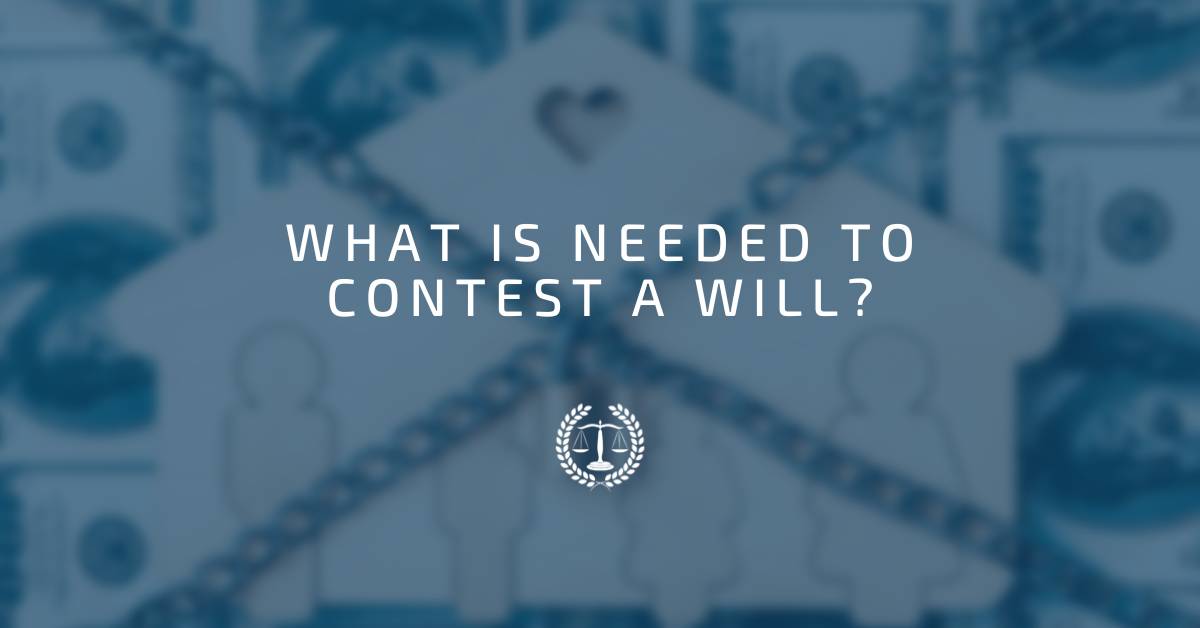After the death of a relative, a will may be revealed to their family. A will is a legal document that indicates how a person desired his or her property to be distributed after their death. It could go towards the family or friends, a non-profit organization or someone else, as long as it was formally and legally included in the will. However, if one feels that the will is invalid, whether due to the mental health instability of the testator (the person who makes the will) or if the person feels they were excluded unjustly, the person may contest the will. This means that the person can challenge the will and its terms in probate court. Usually, the process is lengthy, taking months or even years to end; it can also be expensive, cutting a large sum from the inheritance if the person wins.
The first step in contesting a will is filing a petition with a probate court, typically with the help of a probate attorney or lawyer. A probate court supervises how someone’s estate is managed after the person passes away. For this, you must prepare a formal claim. The claim will be submitted to the probate court located in the testator’s county where he or she passed away. Each case is different, but the court’s clerk will provide you with the correct paperwork for you to make the claim. Most people hire an attorney if they are unfamiliar with contesting a will, which can save money and time compared to hiring a lawyer. Hiring a law professional is completely optional but can be very beneficial. Many in Pascagoula, Mississippi, look towards Mestayer Law Firm, PLLC to hire the best probate attorney.
After filing a petition in probate court, the person contesting the will may prepare for a hearing. The hearings are similar to civic trials. A deposition, an out-of-court testimony and other evidence may be needed. When contesting a will, one must have any documents that may support the claim in advance. It would also be beneficial to plan for testimony on the stand. All evidence prepared should be valid; the more valid, the more likely the hearing will be successful. Examples of evidence could be bank statements, medical records or witness testimonies. Before the hearing, one must acquire the most evidence possible to have strong support for the claim.
Contesting a will can be a very arduous task that causes stress and tension in the family. The majority of those who challenge a will are likely to be unsuccessful. To save time and money, they usually agree to a settlement with the other beneficiaries of the will. In most cases, the settlement has a significant difference compared to the probable inheritance if the hearing is successful. However, a settlement could eliminate additional fees and reduce the tension within the family. The decision of reaching a compromise has many affecting factors. The most significant factor is the advice from an estate lawyer or attorney and their prediction of the case’s outcome.
If a person decides to not go through with a settlement and continues the case, there are two possible outcomes. If one wins the case, the assets claimed are now under his or her control. This could be money in the form of a check or direct deposit; it could also be a physical inheritance such as a home. The most probable is losing the will contest and depending on the extremity of the case, the person could lose his or her claim to the original inheritance if there was any in the beginning.
Contesting a will is stressful, time-consuming and expensive. However, the help of a professional legal attorney or lawyer could be beneficial in a variety of ways. At Mestayer Law Firm, PLLC, the team is prepared to aid in the best capacity. If you require legal advice for contesting a will, the people of Mestayer Law Firm, PLLC are ready to help. Call (228) 762-1193, or book a consultation through our website. For any inquiries, email us at elliot@mestayerlawfirm.com.
No representation is made that the quality of the legal services to be performed is greater than the quality of legal services performed by other lawyers.
This article does not create an attorney-client relationship. I am licensed to practice law in Mississippi and have based the information presented on US laws. This article is legal information and is for entertainment and informational purposes only and should not be seen as legal advice. You should consult with an attorney before you rely on this information. Any information provided in this blog is accurate and true to the best of my knowledge, but that there may be omissions, errors or mistakes.

